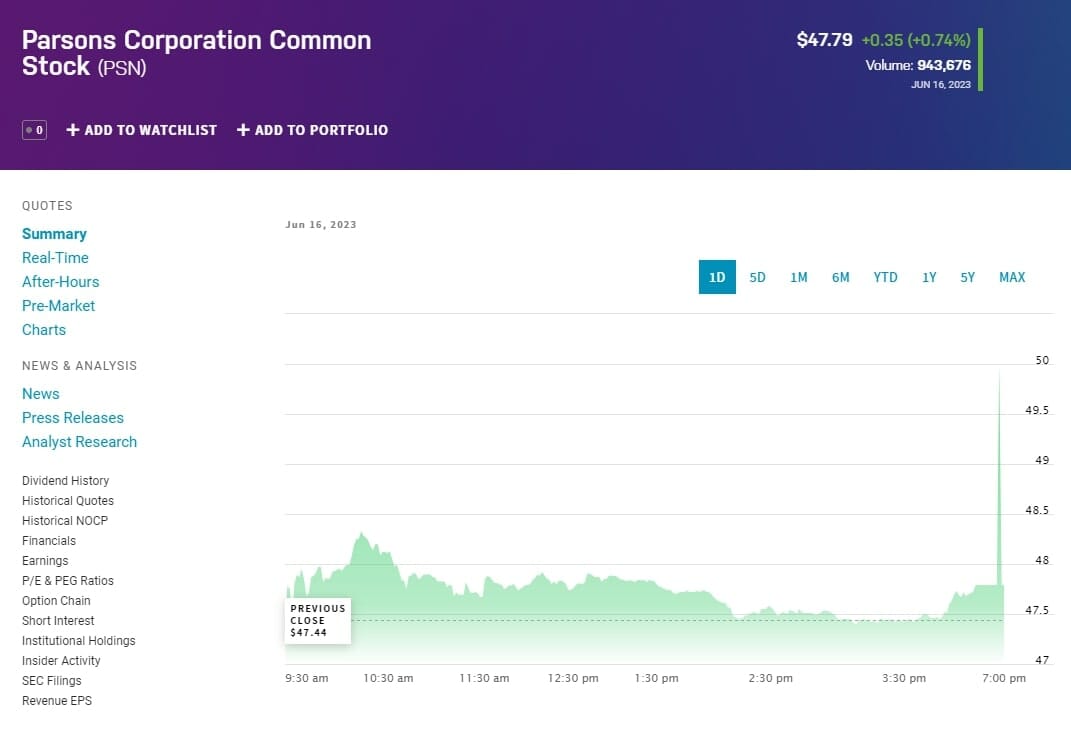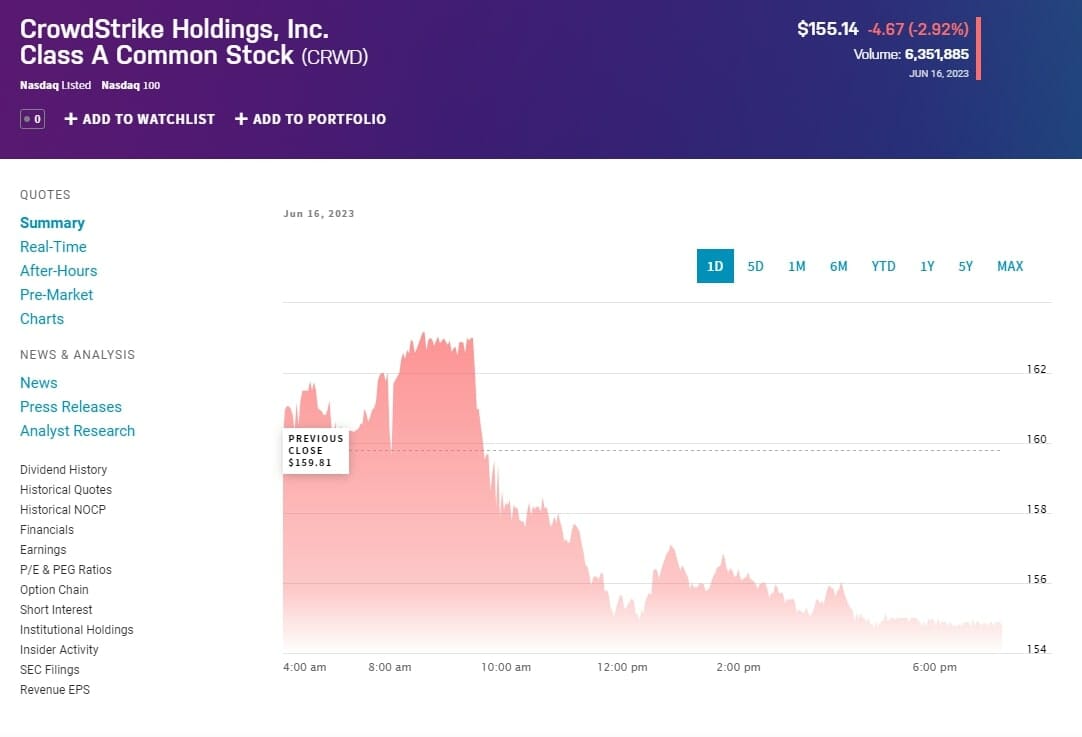In an era where almost everyone in modern society has a digital footprint, information has become a valuable asset. There have been recent cases of mass hacks that affected not just ordinary citizens but also government agencies like the US Energy Department by Russian groups using ransomware that exploited the security flaw in the MOVEit software.
Even though the software developers have patched the security flaw, newly found vulnerabilities can still be exploited and exposed to a multitude of cyber threats. This is why cybersecurity companies are gaining ground as an invaluable section of the digital market, which makes them prime candidates for investing.
What Are Hacking And Ransomware?
Hacking is a method of accessing any digital device through networks via unauthorized access to the account or computer system. Even though the term gives a negative connotation due to its common association with illegal activity and data theft by cybercriminals, the method itself is also by “ethical hackers” that reveals the vulnerability of systems to easily prevent potential cyber threats and patch security flaws.
On the other hand, ransomware is malicious software designed to lock computer systems or encrypt files and hold them hostage. Perpetrators of ransomware will demand a ransom payment in exchange for restoring access to compromised systems or decrypting the files.
How Ransomware Affects Business And Its Victims
It is important for organizations to have considerable defenses against cyber attacks. Hackers exploiting vulnerabilities in an organization’s system can lead to several consequences. For example:
Financial Consequences
Ransomware attacks have significant financial repercussions on organizations and individuals. The downtime, costs associated with ransom payments, and recovery efforts can be astronomical. Extreme cases can even cause small businesses to be vulnerable to severe financial losses and lead to bankruptcy.
Operational Disruption
Besides financial losses, hacking and ransomware can disrupt critical operations, halt productivity, and damage services, tarnishing a company’s reputation. This has a severe impact on sectors like healthcare which can have life-threatening consequences by disrupting access to patient records or medical equipment.
Data Breach And Privacy Concerns
Privacy concerns are one of the main any organization’s cybersecurity is breached. Most ransomware attacks can involve exfiltrating sensitive data before encryption which raises serious privacy concerns as it leaves the vulnerability of organizations to threats of exposure of sensitive data or sale of the stolen information. This can lead to potential legal and regulatory liabilities for affected entities.
The Importance Of Cybersecurity Companies
Cybersecurity companies provide organizations and individuals with a robust way of protecting important data and sensitive information. They provide multi-layered security protocols, stringent access controls, and different software that help detect and protect against threats of cyber attacks.
Cybersecurity companies also employ various cybersecurity professionals that can rapidly identify and respond to threats. The increased adoption of A.I. adds another layer of technology to enhance the capabilities of companies to detect and prevent cyber-attacks
Why Invest In Cybersecurity Companies?
Technology will always continue to grow, and so are cyber threats. When new technology and software get released, there are options for hackers to take advantage of these flaws. This offers investors an angle for potential investments like:
Growth Potential
The relentless expansion of the cybersecurity industry has always been fueled by the rising threat of cyber attacks. With A.I. starting to go mainstream and almost everyone having digital footprints, the need for cyber security will always exist. The more society goes digital, the more virtual backdoors open and threats occur.
Technological Advancement
Cybersecurity companies are one of the proponents of innovation. They consistently develop state-of-the-art technologies and solutions to help counter the ever-evolving tactics of hackers and ransomware attackers. The more society needs cybersecurity, the more research and investment are required to further strengthen the capabilities of cybersecurity companies.
Now let’s take a look at some of the largest cybersecurity companies to date.
Parsons Corporation (PSN)

Market Cap: $4.97 Billion
Parsons Corp (NYSE:PSN) is a company that provides integrated solutions and services for digital transformation and security environments. The company operates through two segments:
- Federal Solutions
- Critical Infrastructure
Its federal solutions segment provides highly critical technologies that include:
- Cybersecurity solutions
- Missile defense technical solutions
- Command, computers, control, communications, and cyber solutions.
- Intelligence, surveillance, and space launch and ground systems.
- Space and weapon system resiliency solutions
- Geospatial intelligence solutions
- Signals intelligence services
- Nuclear and chemical waste remediation.
- Border security solutions
- Critical infrastructure protection services.
- Countering of unmanned air systems.
- Biometrics and biosurveillance solutions.
Its critical infrastructure segment provides integrated design and engineering services for complex digital and physical infrastructures around the globe. The company focuses on delivering technology-driven solutions to its customers worldwide.
Crowdstrike Holdings Inc. (CRWD)

Market Cap: $38.15 Billion
Crowdstrike Holdings Inc (NASDAQ:CRWD) is a cybersecurity-focused company that uses a software-as-a-service (SaaS) subscription-based model to provide cloud-delivered protection of endpoints, cloud workloads, identity, and data. The company offers its Falcon platform, which delivers an integrated, performance-driven protection platform while reducing customer complexity.
The company’s Falcon platform uses a single lightweight-agent architecture with integrated cloud modules spanning multiple security markets. This includes corporate workload security, security, and vulnerability management, managed security services, information technology (IT) operations management, identity protection, threat intelligence services, and log management. The company offers approximately 23 cloud modules on its Falcon platform:
- Falcon Prevent
- Falcon Insight
- Falcon Device Control
- Falcon Firewall Management
- Falcon XDR
- Falcon Discover
- Falcon Spotlight
- Other modules
Fortinet, Inc. (FTNT)

Market Cap: $58.02 Billion
Fortinet Inc (NASDAQ:FTNT) is a company that offers cybersecurity and networking solutions. Its main customers for its cyber security solutions are a variety of organizations:
- Enterprises
- Communication service providers
- Security service providers
- Government organizations
- Small businesses
The company’s product offerings include its core platform network security products alongside other enhanced platform technology solutions. These are offered in a range of forms spanning:
- Physical appliances
- Virtual appliances
- Software
- Cloud-hosted service
Fortinet’s secure networking solutions enable the convergence of security and networking across all edges to provide a next-generation firewall, secure access service edge (SASE), and software-defined wide area network (SD-WAN).
The company’s Zero Trust Access solutions enable its customers to quickly identify and control who and what is on their network. It also offers services to counter threats in real-time called FortiGuard security services that use artificial intelligence-powered, coordinated protection.
Final thoughts
As technology continues to improve, ransomware attacks will remain a threat to our digital society. By supporting and investing in these companies, investors are also contributing to the development of robust cybersecurity measures that can protect not just corporations but also our governments. The continuous growth of these companies can help build a more secure digital future.




